What Causes Acne?
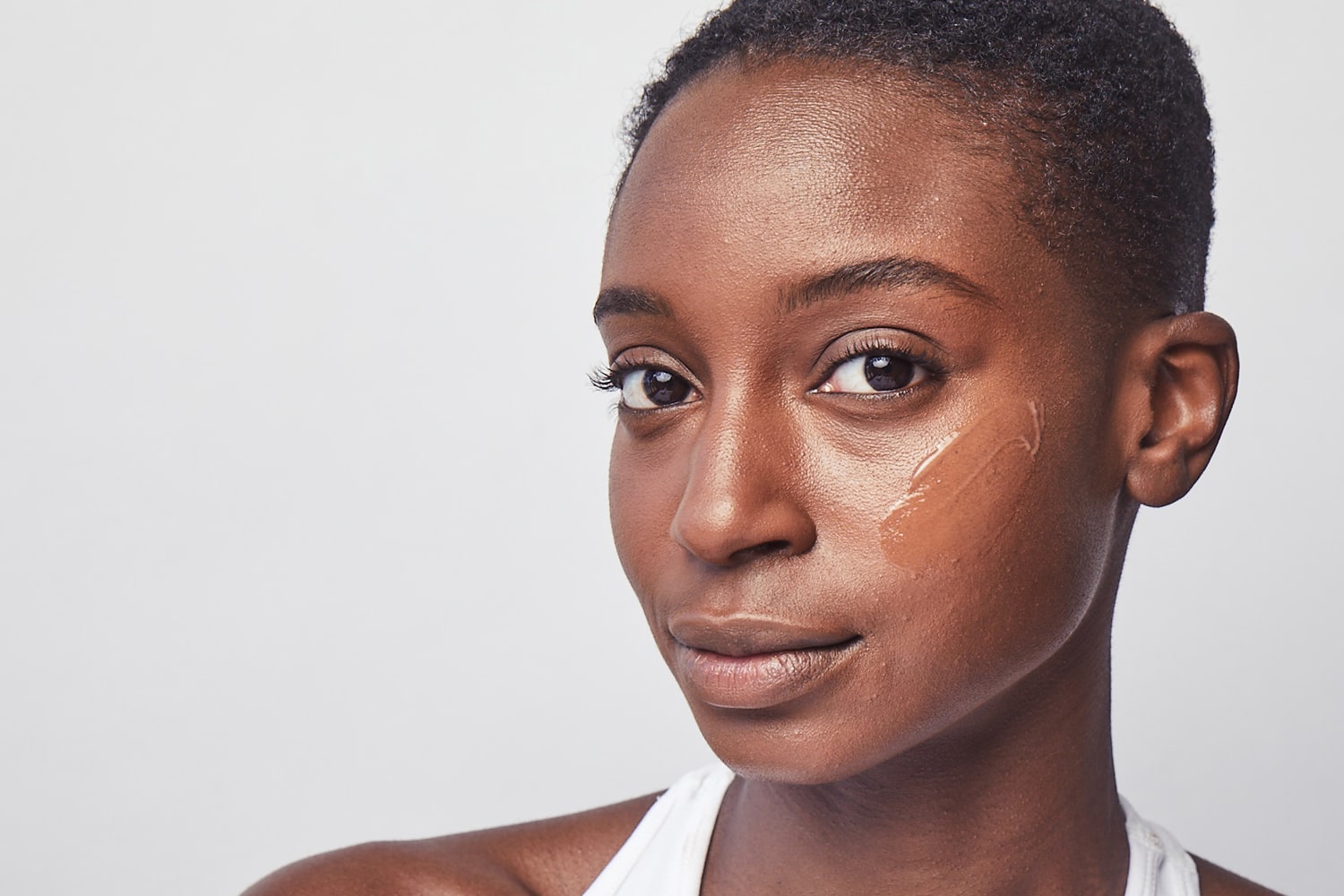
Each year, over 50 million Americans are affected by acne in varying degrees and according to The American Academy of Dermatology, acne is the most common skin condition in the United States.
Acne occurs when the small pores on the surface of the skin become blocked with oil, dead skin cells, and bacteria. Each individual pore on the skin opens up to a follicle beneath the epidermis. Within these follicles lie a singular hair and a sebaceous gland. The sebaceous gland produces sebum, an oil designed to keep your skin lubricated and soft. However, when hormonal changes and other factors cause the gland to produce an excess of sebum, the oil will be pumped through the follicle, and may pick up dead skin cells and P. acnes bacteria on its way out.
Should these substances clump together, a plug will form. As this plug starts to press up against the surface of the skin, the body responds with an accumulation of red and white blood cells to combat any infection, and this results in inflammation and redness.
Acne can occur on the face, back, neck, chest, arms, and buttocks, and any other skin area with a saturation of sebaceous pores. On the face, acne is common on cheeks, forehead, chin, and jawline.
Major Causes of Acne - Hormones
Common acne, known medically as Acne Vulgaris, is generally caused by hormonal changes in the body, and its onset usually can be found in teenage years when puberty rears its head. Acne is directly attributed to the rise of androgen hormone levels.
The production of these hormones rise when a child begins puberty, and is the reason much acne is prevalent in adolescence. As androgen levels rise, the oil glands sitting directly underneath the skin enlarge and produce increased levels of oil, also known as sebum. When pores are filled with excessive sebum, it can cause surrounding skin cells’ walls to rupture and create a breeding ground of P. acnes bacteria. As the sebum attempts to push out of the pore, it can attach to this infectious bacteria and dead skin cells, causing a blockage that begins the formation of a pimple. According to Medical News Today, dermatologists purport that almost three quarters of 11 to 30-year-olds will deal with acne at some point, but acne breakouts can continue on into adulthood, and have been observed in patients in their fifties.
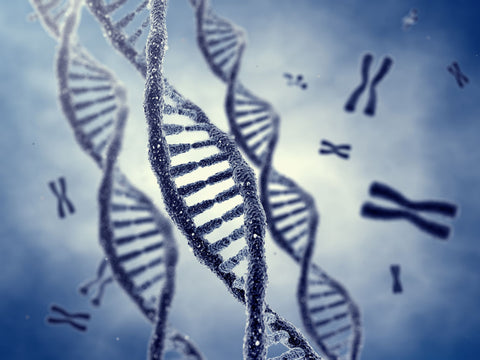
What Causes Acne? - The Role of Genetics
Genetics can also have an effect on acne breakouts, and may be the reason some people are acne-prone while others are not. One of the top cited studies took a look at 458 pairs of identical twins and 1099 pairs of fraternal twins to study acne prevalence. They found that genes explained a significant 81 percent of the difference in acne prevalence, while the other 19 percent was explained by non-shared environmental factors.
Yet another study took a look at the difference in rates of acne in first-degree relatives between patients and controls. The study used 204 acne patients, and 144 non-acne controls. Their study determined that having a first-degree relative who suffers from acne increases the risk of getting acne by four times. Genes play a role in several ways: firstly, they contribute to skin sensitivity. Acne-prone skin is more susceptible to oil production, and tends to shed and regenerate skin cells faster. Those prone to acne also exhibit strong inflammatory responses to skin irritants and bacteria in comparison to those who don’t have issues with acne.
While acne has been linked to genetics, it might also be plausible that shared habits and culture contribute to incidence of acne, although there’s been no significant science behind that claim.
What Causes a Pimple?
Sometimes it seems like pimples sprout up overnight, but the process of pimple formation is a bit more complex. So what are the most common causes of pimples?
A variety of factors can result in an acne blemish. Pimples can develop on anyone at any age, but tend to be most common among teens. Why do teenagers get the brunt of breakouts? Hormone fluctuations.
When hormone levels increase, the sebaceous glands found within the skin’s hair follicles produce an excess of sebum. Sebum is a waxy substance that the body produce to keep the skin soft and moisturized. However, when hormonal changes cause an increase in sebum production, the pores can become clogged. This sticky substance can collect dead skin cells, debris, and bacteria, forming a plug in the follicle. Blackheads, whiteheads, pimples, and pustules all begin the same way.
Preventing pimples means discovering the reasons you’re breaking out and doing all you can to combat these factors, including following our top teen skincare tips and natural beauty tips. There is no single answer to the age old question of how to get rid of pimples.
What Causes Acne Breakouts?
Understanding why you break out requires consideration of a variety of aspects. There are many underlying reasons for acne breakouts, but most pimples are caused by fluctuations in hormone levels. During puberty, the increase in androgens (male hormones) causes the adrenal glands to go into overdrive. This triggers the production of sebum within the sebaceous glands. The more sebum produced, the easier it is for hair follicles to become clogged. When the follicle becomes blocked, oil can’t leave the pore, collecting dead skin cells that would have otherwise sloughed off and hanging onto bacteria called p. acnes. These hormonal fluctuations can arise at other times in life, including menstruation, pregnancy, and menopause.
Genetics can also play a role in the frequency and severity of your acne breakouts, along with certain daily habits. From cleansing routines to diet choices, using the wrong products to smoking, there are many factors behind pimples and other acne blemishes.
How You Diet Affects Acne
You may have been told that what you eat affects your skin and that it can be the cause of pimples and outbreaks, but the debate about diet playing a role in acne frequency still rages on. Many dermatologists will vehemently dismiss the claims that food and acne are linked, as so much of the research surrounding this aspect of skin care has been inconclusive. Studies either yielded weak results, or were flawed with too few subjects or lack of control groups.
Clean Eating
One study that gained a lot of traction in the acne vs. food debate appeared in the Archives of Dermatology in 2002. This research was based on the study of 115 people in Eastern Paraguay and 1,200 individuals in Papua New Guinea. The individuals in this study lived on a diet of self-raised lean meats and fresh plant foods, and scientists were astonished to record not a singular case of acne in either population. Based on this evidence, researchers concluded that the standard Western diet composed largely of starches and refined sugars might be a culprit between the high rates of acne in the Western world.
This study was met with pushback. Some were dubious of the claims that no acne existed on any individual in that group of over 1,300, and others citing the lack of scientific-based evidence in the research findings but it’s a study that’s still cited in debates about the topic.
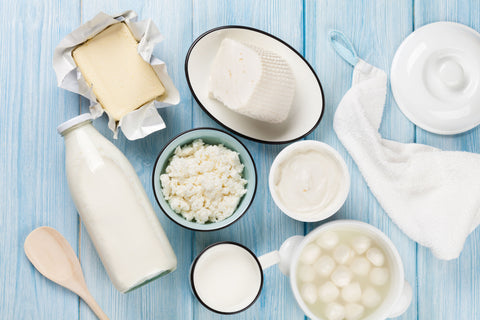
Does Dairy Play a Role?
Another study focused in on dairy. In 2005, an article in the Journal of the American Academy of Dermatology took on milk and milk products. By examining the diets of 47,355 women, researchers observed a significant connection between milk and dairy intake and breakouts. Some researchers believe this is caused by high levels of hormones found in our milk products. Much of the milk consumed is produced by pregnant cows, who pump out progesterone, IGF-1, and other compounds that are then passed into the milk. We may also be subject to Bovine Growth Hormone (BGH). These hormones can signal the oil glands to start producing more sebum, which can affect acne. Unfortunately, switching to organic milk doesn’t seem to make a difference, and neither do skim milk options. In fact, skim milk has been observed to worsen the skin, which researches have attributed to lower levels of estrogen and different processing activities. Milk is also known to contain a number of vitamins, some good and some not so beneficial to your skin. Research has shown a correlation between acne and vitamin A in milk.
Chocolate and Acne
There have been rumblings about the connection between eating chocolate and acne conditions for years, but a 2014 study showed some promising research that unfortunately does indicate chocolate as a cause of acne flare ups. This study, published in The Journal of Clinical and Aesthetic Dermatology, took a group of 14 men aged 18 to 35 to examine the effects of cocoa on the skin. On days that followed chocolate consumption, the number of both non-inflammatory and inflammatory pimple lesions grew exponentially.
However, that’s not reason to throw out the chocolate bars just yet. There were some glaring shortcomings involved with this particular study; mainly, its size. With only 14 participants, the study group was small—small studies are predisposed to error. Others proclaimed the difference in acne could have been merely due to natural variation.
Clearer skin in as little as two weeks.
This 3-step routine combines the most effective (clinically-proven) acne fighting ingredients with powerful plant intelligence to leave your skin nourished, refreshed, and clear.
Try SomeThe Effect of Iodine
Those who consume a bevy of seafood, seaweed, and iodized salt experience high iodine levels. These iodine levels have also been purported to trigger acne flare ups. Word spread about iodine’s potential for causing skin issues in the 1960s, and it’s had a bad rap ever since. However, recent studies have fought against this pervasive thought, as some studies have seen no difference between acne in those who were given iodine and those who weren’t. It’s important to take these studies with a grain of salt, and understand that depleting your diet of iodine can have negative effects on holistic health. Iodine is essential for proper thyroid function, and is responsible for the manufacture of T3 and T4 thyroid hormones and it’s important to maintain proper levels of iodine in your diet.
Acne Causes - Working with Greasy Foods
One way food has been proven to affect acne is through preparation. Restaurant and fast food employees that come into contact with greasy products and equipment can experience higher rates of acne because oils can attach to the skin and block hair follicles, resulting in pimple formation.
These pervasive assertions may have convinced you to avoid greasy potato chips and decrease your chocolate intake, but this might not be the case. The connection between alcohol and acne has been proven, but it will take further research to truly uncover the link between diet and acne.
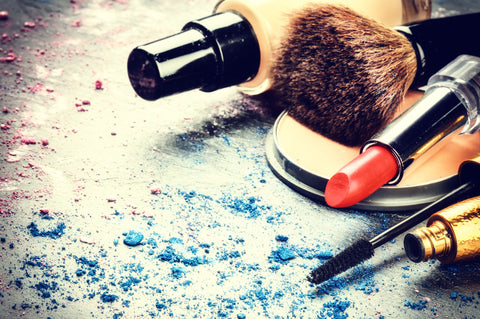
Acne Causes - The Deal with Makeup and Acne
You may have heard the age old question, "does makeup cause acne?". While wearing makeup can exacerbate acne flare ups, it is not necessarily the case. Some support the fact that that cosmetics can fill up your pores, worsen pimples, and prevent your skin from “breathing”. The truth is, whether or not makeup worsens acne is highly individualized. While excessive use of foundations, concealers, and other cosmetics can work their way into and block up your pores, making sure to clean your face of such products before working out or going to bed lessens the likelihood of makeup blockages.
There are many who recommend that those with acne-prone skin use non-comedogenic skincare, that is, products designed to avoid clogging the pores. It’s best to use products that are labeled hypoallergenic and oil-free, and some find that makeup products with salicylic acid help the skin remain clear. It’s also important to avoid applying layer upon layer of makeup.
The Role of Stress
When answering the question "why does stress cause acne?", it is important to note that stress is not the definitive catalyst for breakouts, but rather a factor that worsens a previously existing condition. When stress levels are consistently heightened, adrenal glands signal the production of the male hormone androgen, which signals sebaceous oil glands to secrete more sebum. As this excess oil builds up, acne is more likely to develop. As women produce a larger percentage of androgens in the adrenal gland than men, stress more commonly has an affectation on acne frequency in women.
Stress can exacerbate the appearance of acne, as it expands capillaries and causes increased blood flow. This will make the skin appear red and inflamed. Stress can also make breakouts last longer and become more severe, as pimples and stress levels tend to have a vicious cycle relationship.
Lowering stress levels can have an immediate beneficial effect on the appearance and frequency of acne breakouts. It’s important to maintain a regular exercise routine, get enough sleep every night, and practice stress control methods. Meditation has been shown to alleviate the effects of various skin conditions like eczema and psoriasis, and could have a positive effect on the symptoms of acne.
Many that experience great levels of stress turn to smoking. Can smoking cause acne? It most definitely can, and results in numerous health consequences, so quit as soon as possible.
Acne Causes - Acne and the Gym
Regular exercise is essential to a healthy lifestyle, and does have some positive benefits for skin health. As it lowers stress, you’ll lower your chance of cortisol-caused breakouts. Regular exercise boosts circulation and promotes the production of sweat, designed to help the body rid the body of impurities and toxins.
Unfortunately, sometimes our workout routines can have a negative effect on our skin and be a cause of acne. One of the top perpetrators of gym-related skin conditions is dirty workout equipment. Whether it’s a yoga mat, weights, or handle bars on a cardio machine, shared gym equipment is filled with bacteria and dirt. When this comes into the contact with the skin and sits on the surface, it can cause skin irritation. If you don’t shower immediately after working out, the mixture of sweat, body oils, and bacteria can remain heavy on the surface of your skin, settling back into your pores and causing the onset of pimples.
If you wear tight clothing when working out or don heavy equipment for sporting purposes, you may have experienced Acne Mechanica. This type of acne is prevalent among athletes, students, and soldiers, and is directly caused by excessive heat, pressure, and covered skin. It also may be triggered by consistent rubbing of different materials against the skin. This type of acne can be alleviated by changing out of sweaty gear and clothing and showering immediately after a workout. It’s also important to clean gear of acne bacteria and prevent friction by ensuring a comfortably tight fit. If you believe your acne flare up has been caused by a tight or heavy uniform, wearing a clean, cotton t-shirt underneath can help absorb the sweat and keep your skin protected.
Medications and Acne Concerns
The cause of your acne flare-ups may be hidden in your medicine cabinet. Certain drugs and medications have been reported to cause pimple formation.
Tuberculosis Medication
Tuberculosis is often treated with Isoniazid and Rifampicin and these drugs are known to result in acne in a small proportion of the population. Luckily, once treatment is finished, this acne usually clears up.
Post-Transplant Medication
After receiving an organ transplant, patients are put on a rigid schedule of immunosuppressant drugs to ensure the immune system doesn’t reject the new organ they have received. Usually, the acne fades after the first few doses of medication.
Steroids
Steroids have long been known to cause acne. These drugs are generally taken without a prescription in order to gain muscle, but there are instances in which women are prescribed steroids for rare conditions. Steroids cause hormonal changes, and as the androgen hormones increase, so too does oil production. The more sebum, the greater chance of clogged pores. Steroids might also accelerate the growth of P. acnes, which can make pimples and inflammation worse.
Birth Control Pills
Birth controls can affect hormone levels, and some women may be finding that their birth control is causing acne due to increases in sebum production. This rise in sebum can affect the skin, clogging up pores and leading to acne. According to The Huffington Post, birth control pills that contain androgen-based progestin have been indicated as the most likely offender.
Mental Health Drugs
Medications prescribed for mental illnesses can have the unfortunate side effect of causing acne. Some antidepressants have been purported to trigger acne breakouts, including brands like Wellbutrin and Lexapro. Those diagnosed with bipolar disorder are often prescribed lithium to help handle their condition. Unfortunately, lithium can cause acne breakouts. Often the benefits of these types of drugs outweigh the negative onset of acne, but it’s important to look into various options to determine what might have the minimal amount of side effects.
Talk to your doctor about any prescriptions you’re taking and their side effects to determine whether or not your medication might be affecting your skin. Be open with your dermatologist about any prescriptions or drugs you might be taking in order to ensure your acne medicine takes into consideration any conflicting medication.
Can Acne Bacteria Be Good For Your Skin?
A recent study has found a difference between strains of acne bacteria, which could have a significant impact on acne treatment down the road. This study, published in the Journal of Investigative Dermatology, found that these strains play a role in the severity and frequency of developing pimples. One particular strain of P. acnes was found among study participants that exhibited few symptoms of acne. Researchers came to the conclusion that this “good” strain of bacteria features a natural defense mechanism that fights back bacteria which might infect the cell. Researchers are hopeful that this discovery will help dermatologists better and more accurately prescribe effective acne treatment in the future, and reduce the severity of acne by ridding the skin of bad acne bacteria while preserving the good.
Key Takeaways
- Acne occurs when pores become blocked with oil, acne bacteria, and dead skin cells.
- Acne most commonly occurs in adolescence, when children go through puberty.
- Hormone changes can affect acne prevalence and frequency.
- Certain prescription medications can cause acne breakouts and may worsen a pre-existing acne skin condition.
- Genetics may cause some individuals to be more susceptible to acne.
- There may be a strain of beneficial acne bacteria that could prove helpful in acne treatment down the road.

Abby Vinas
Abby Vinas has long been an active member of the holistic health community, advocating in favor of its benefits to both our physical and emotional well-being. Her commitment to leading a healthy lifestyle has made her an authority on self-care practices. Abby is passionate about fitness, nutrition, and proper skincare, and is also an avid lover of avocado toast and dog-petting.
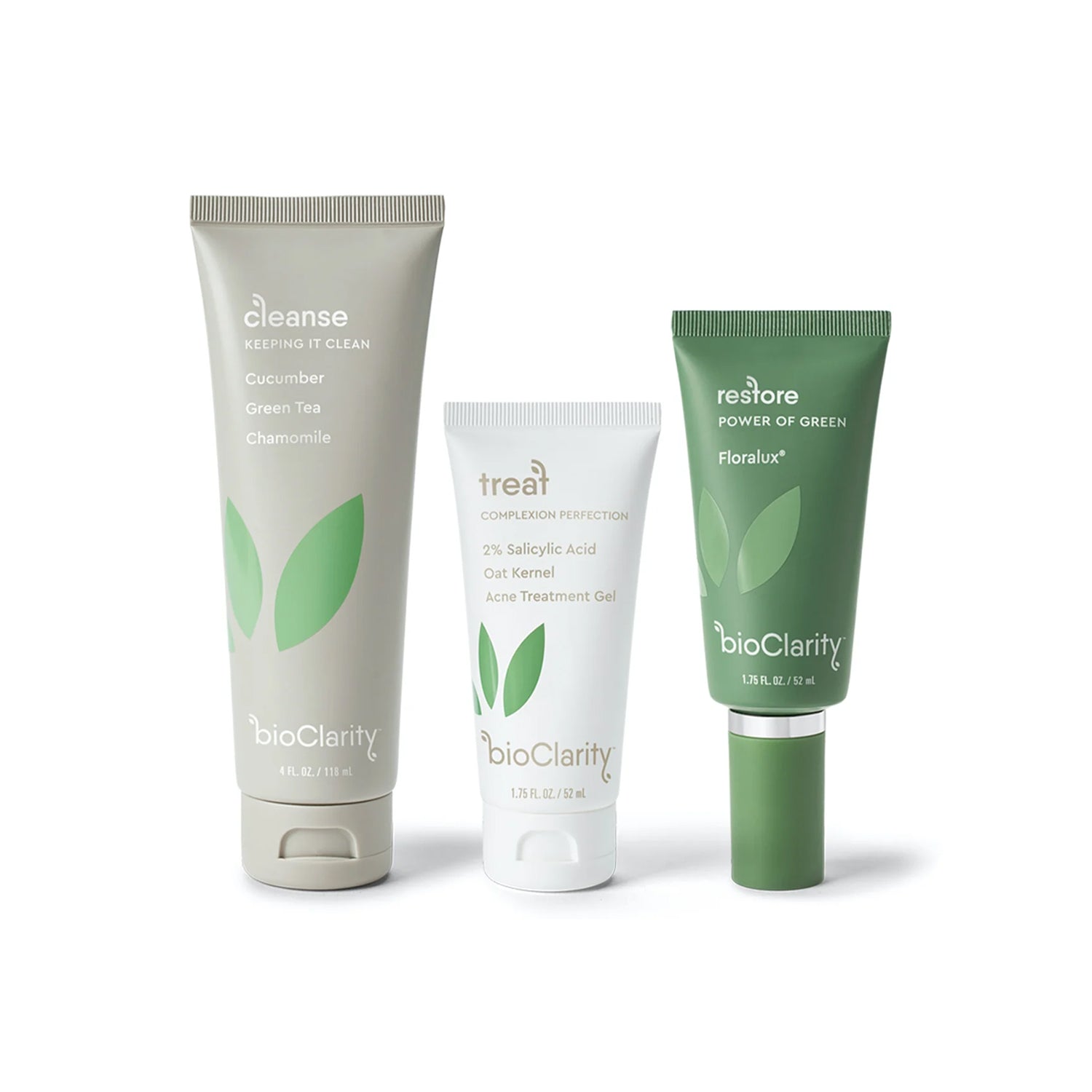
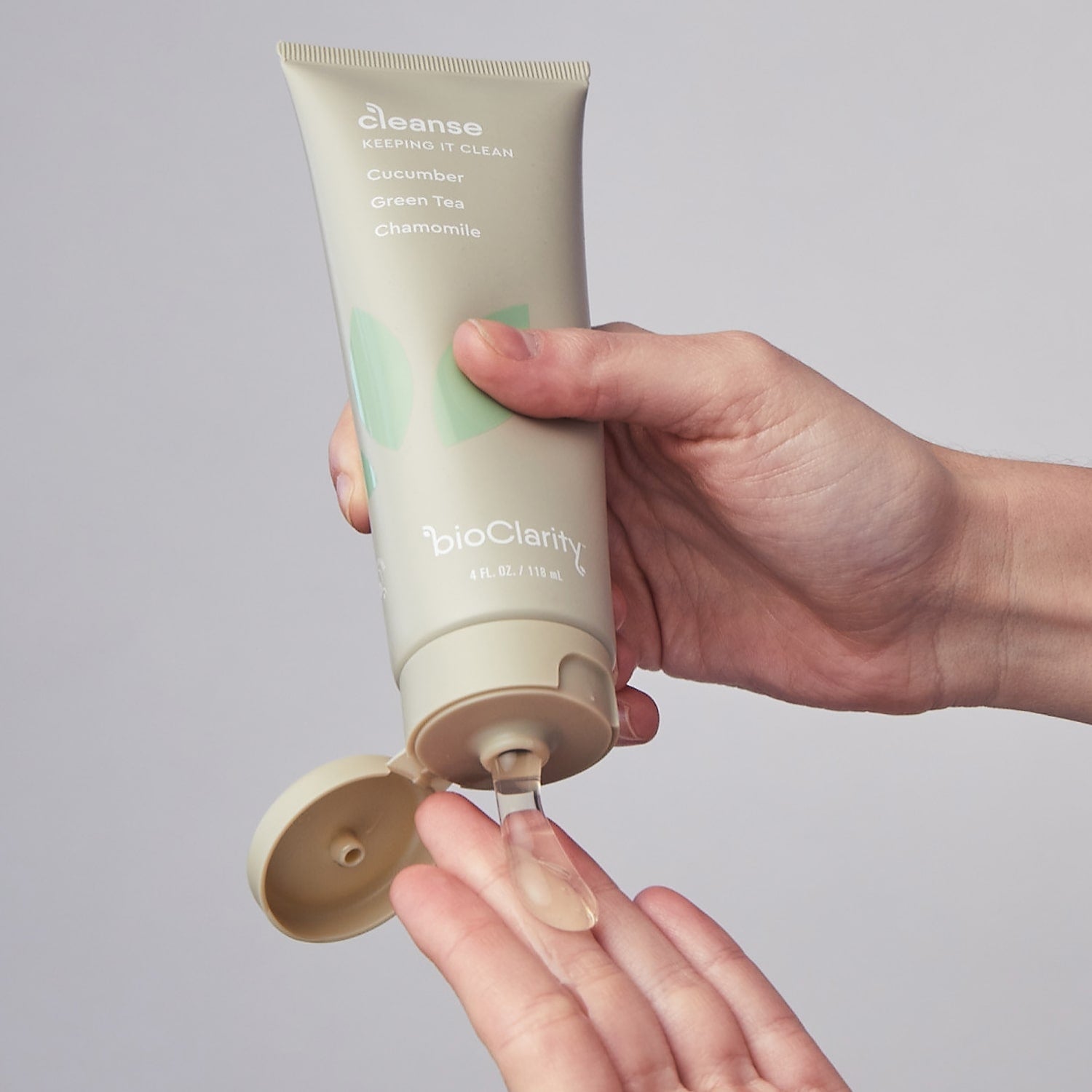
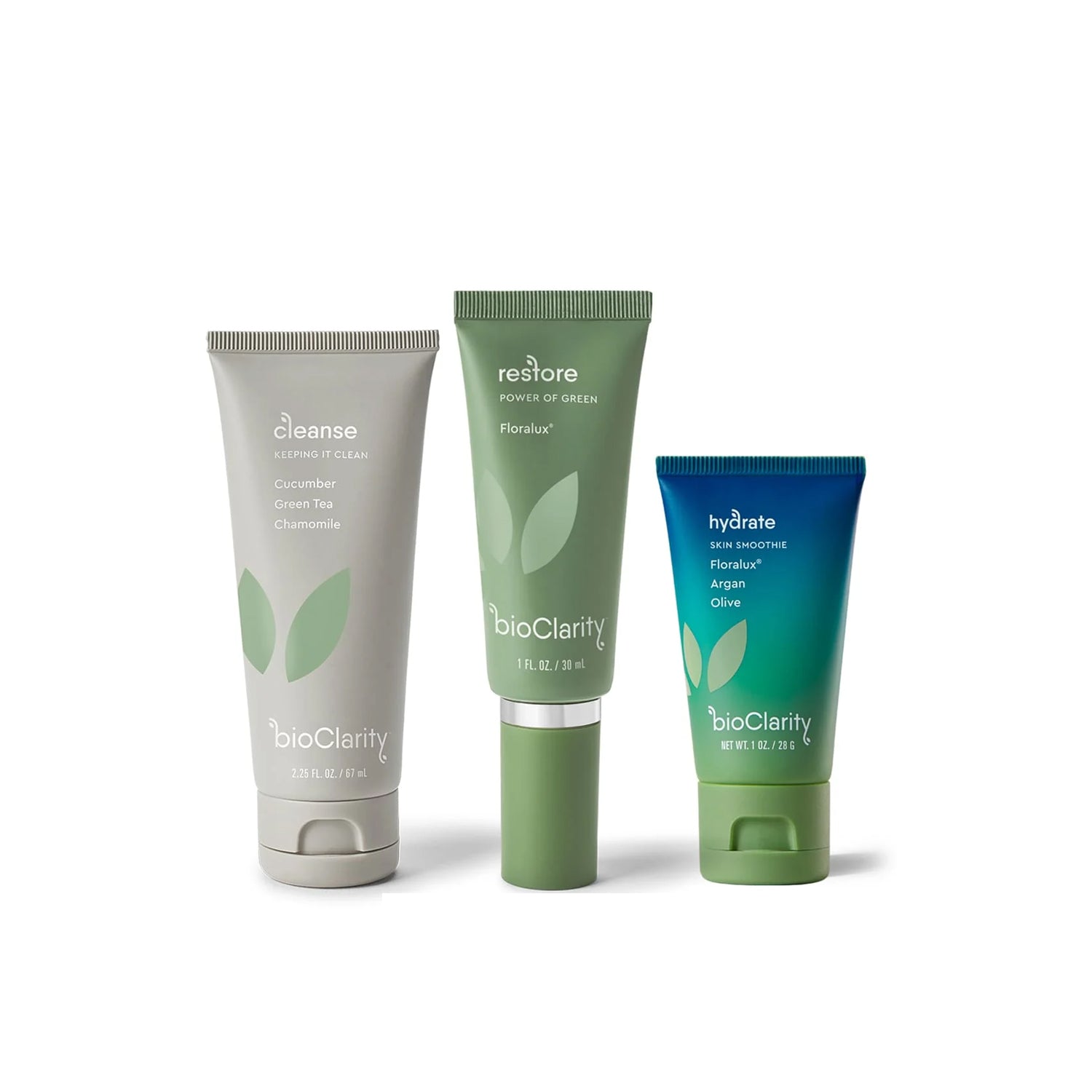
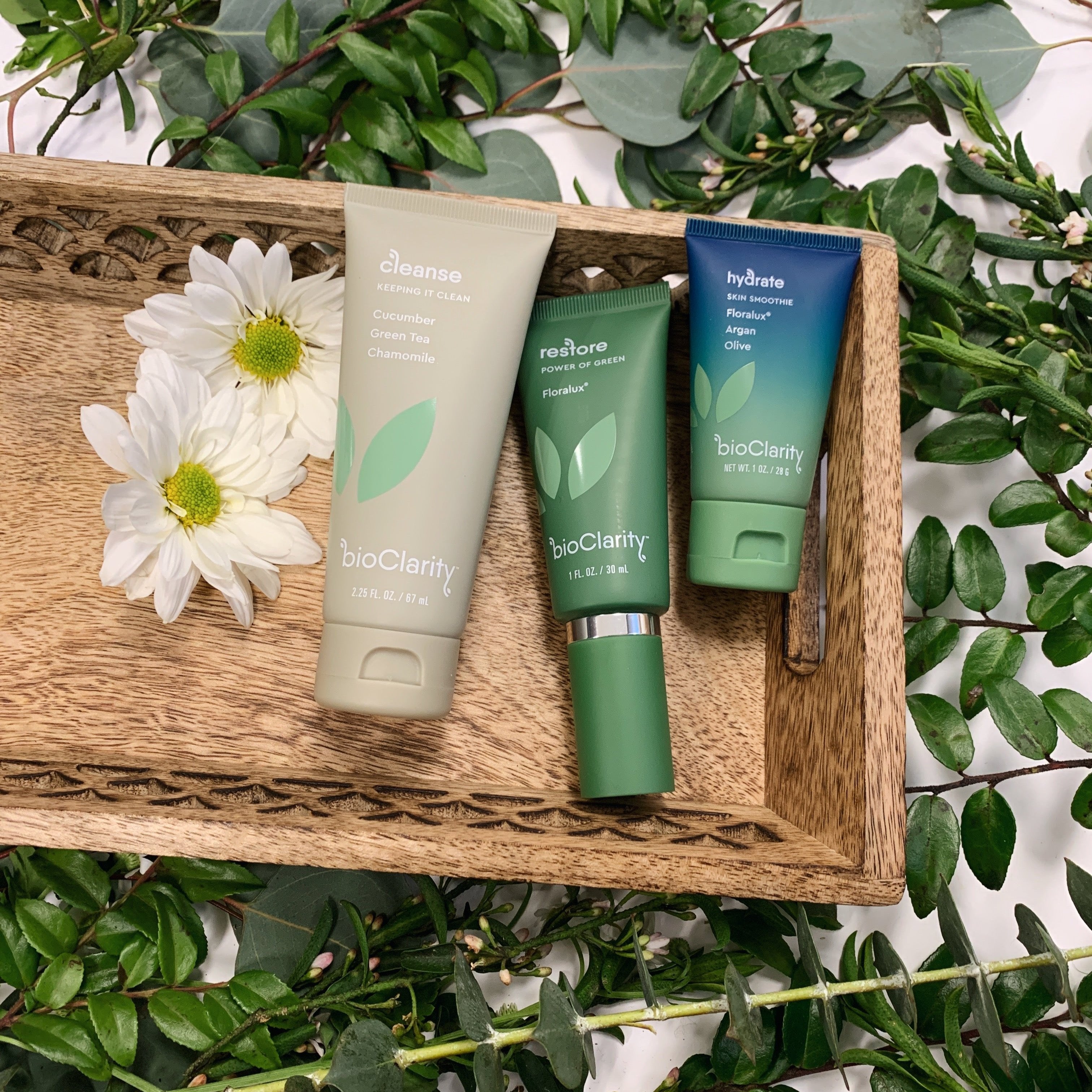
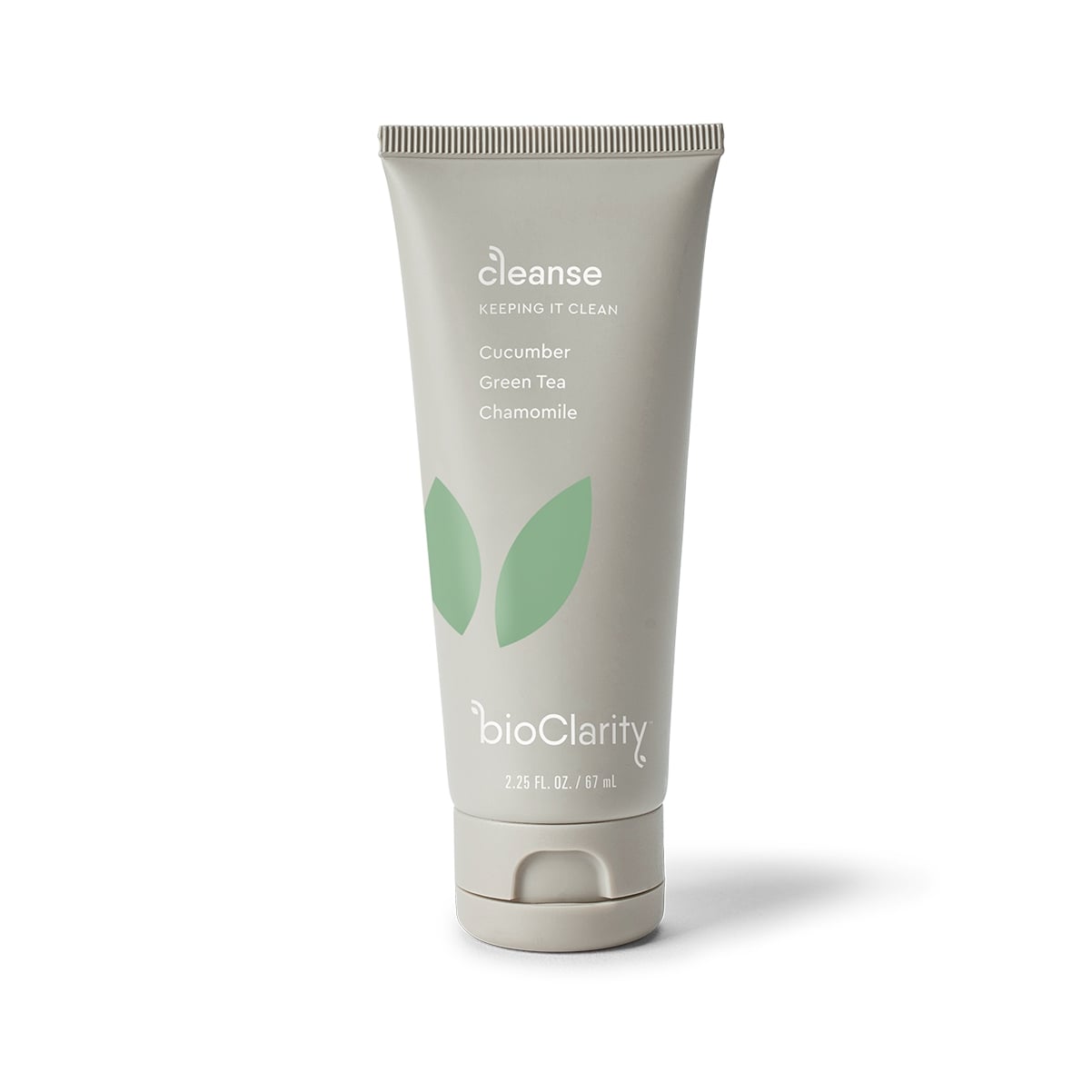
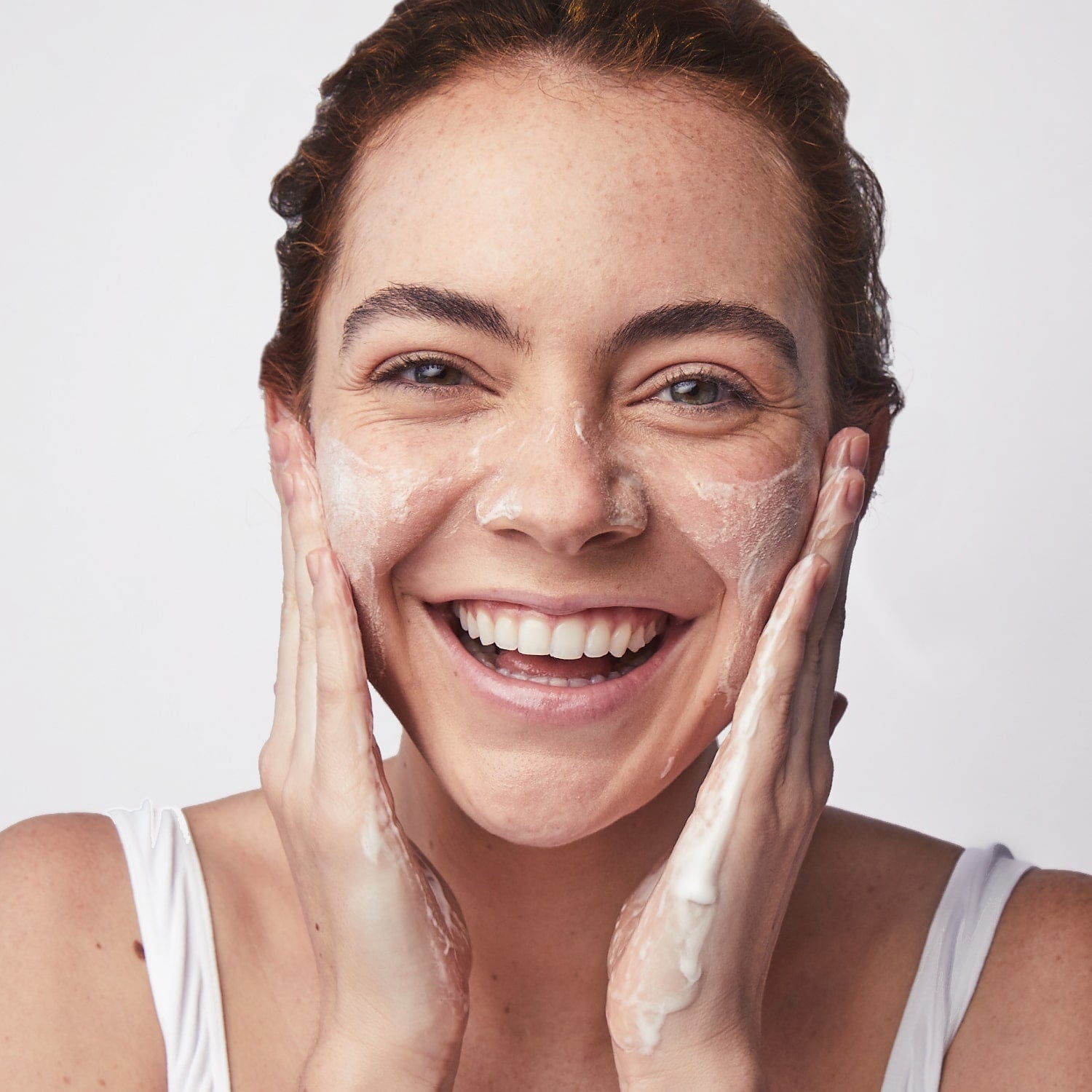


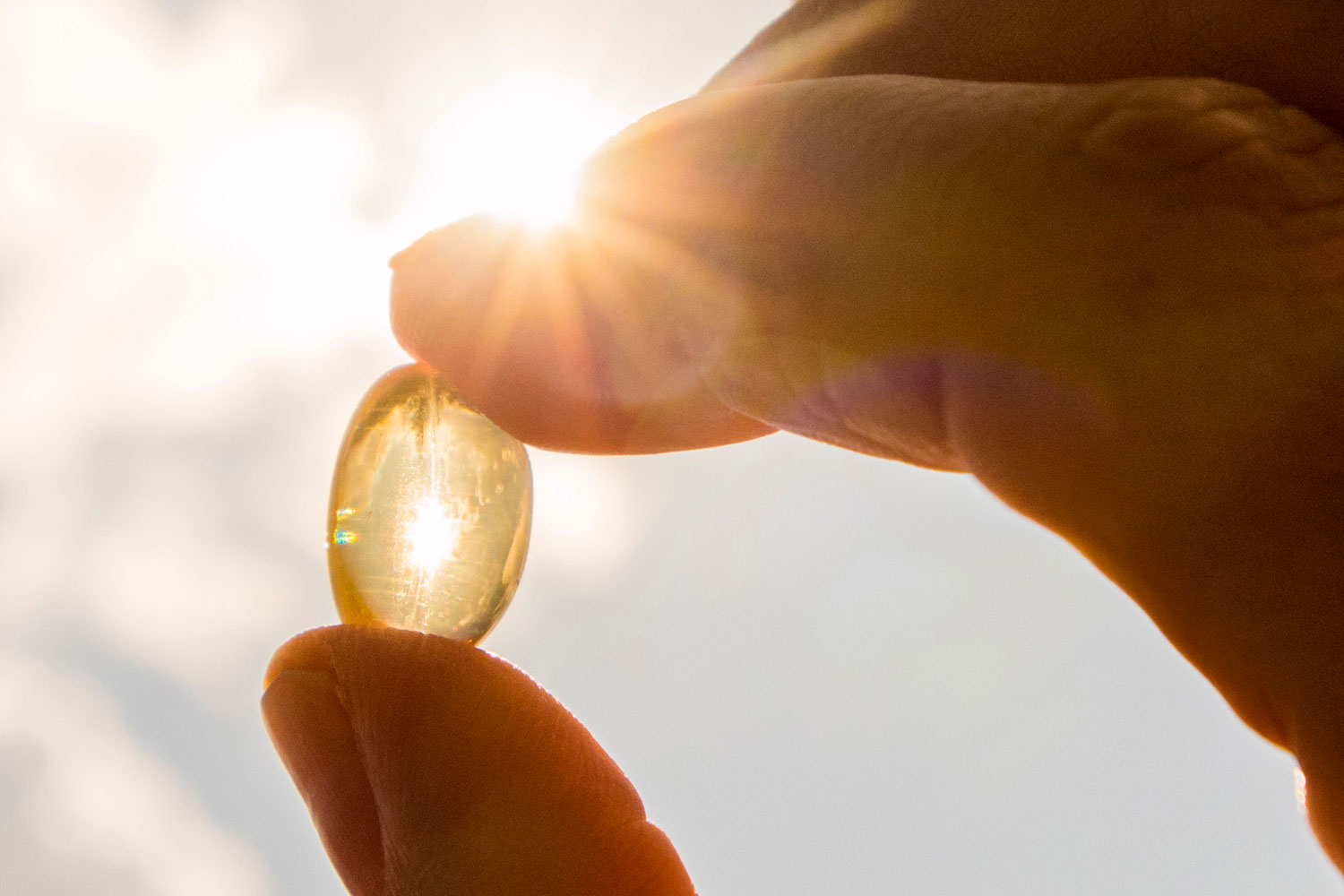
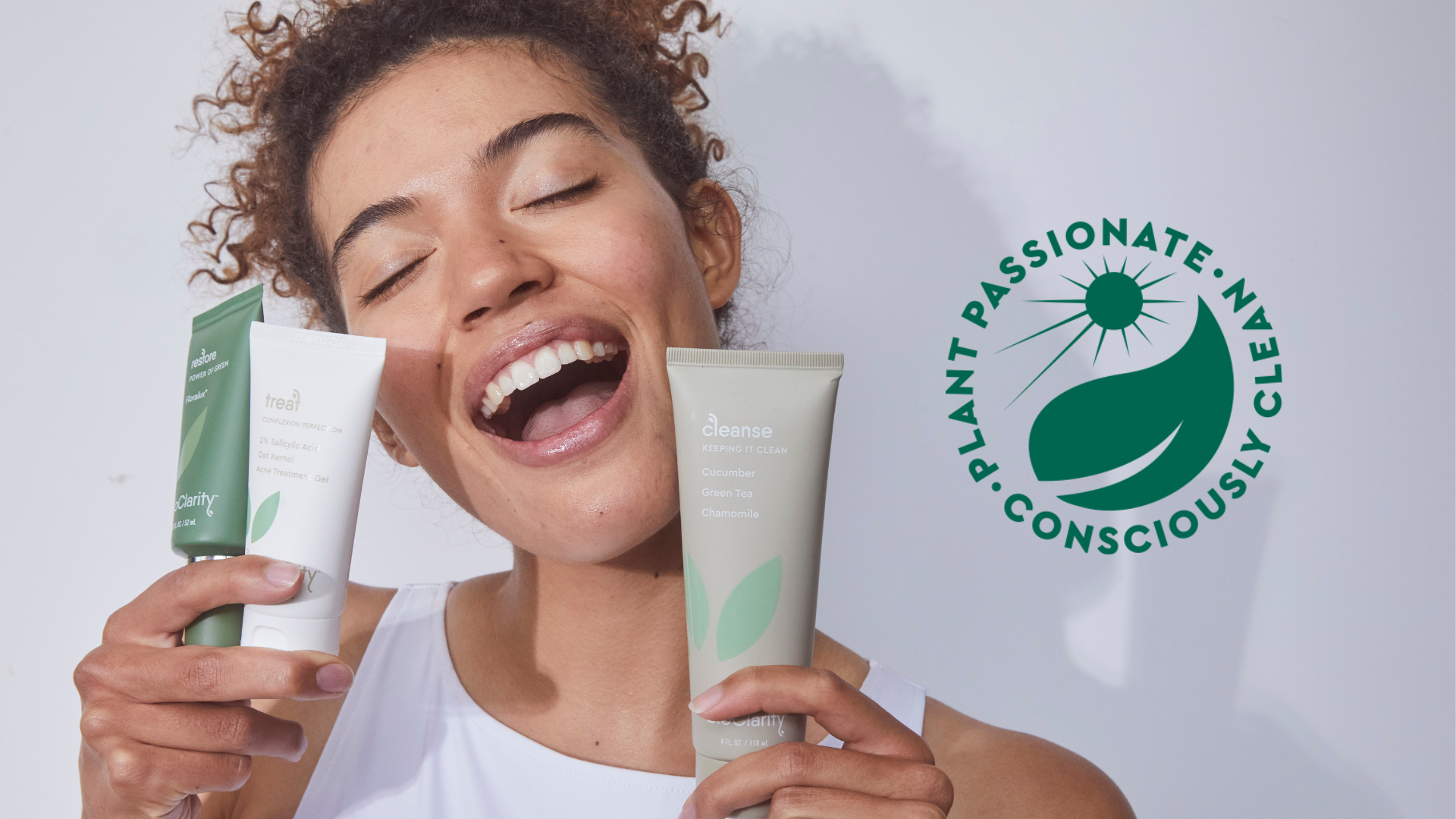
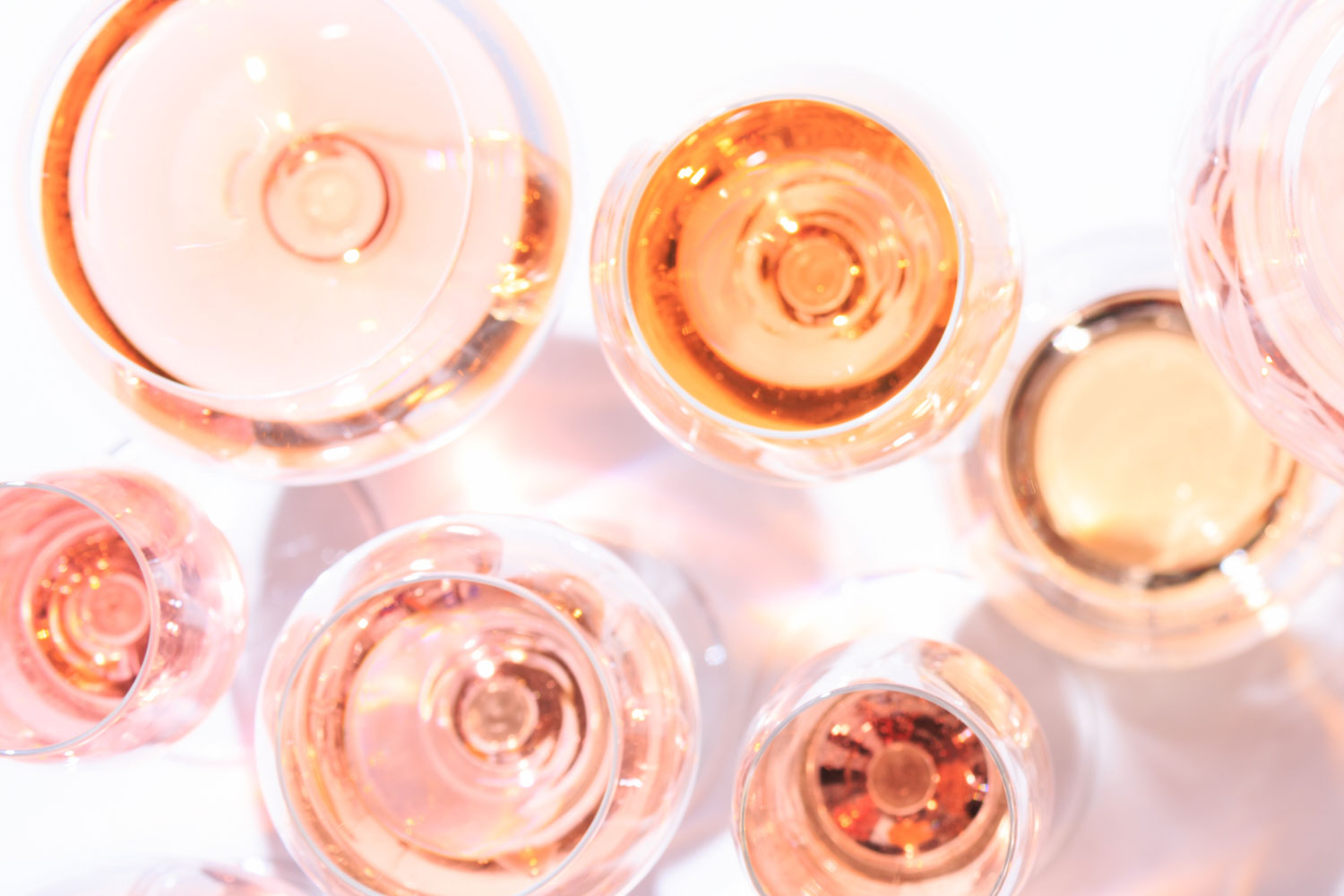
Comments